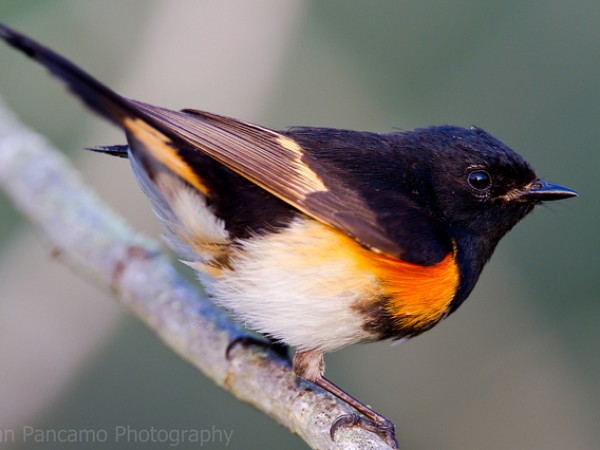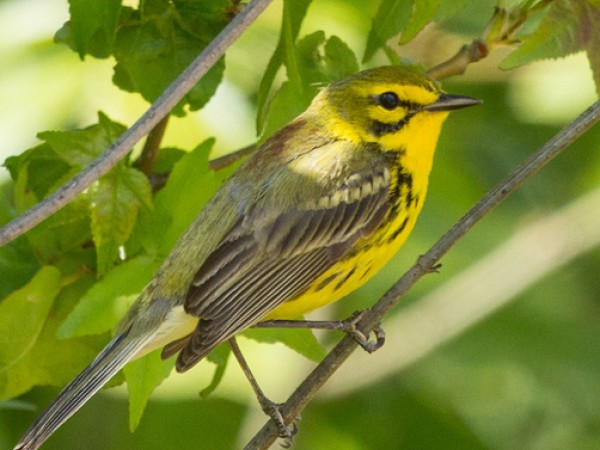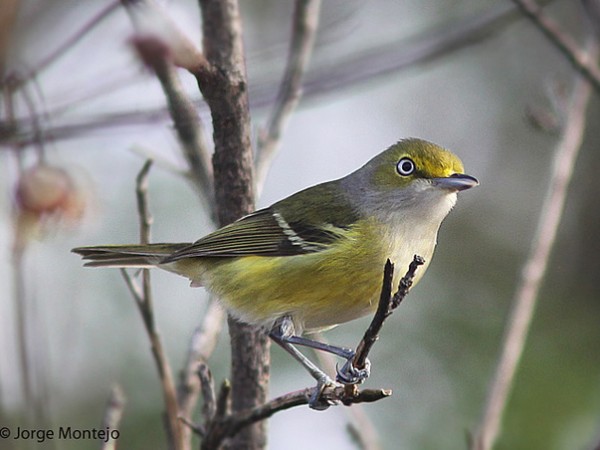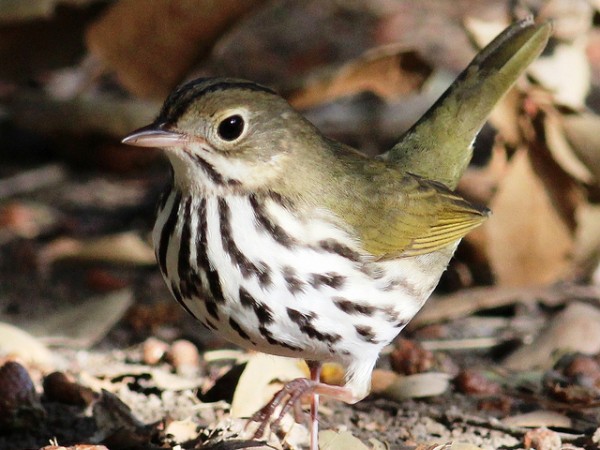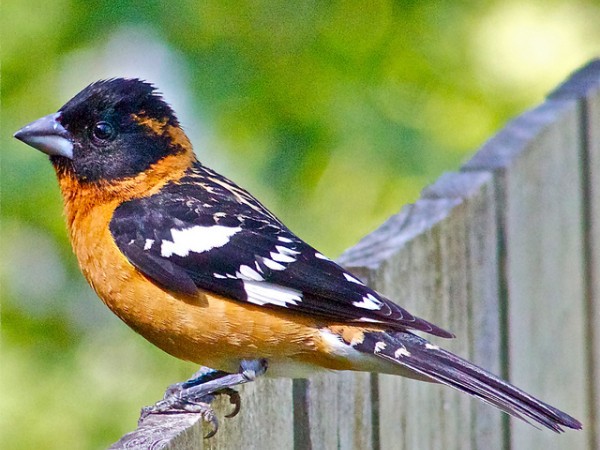2021 Weather Forecasts for Migrating Songbirds #9
Published: 05/12/2021
Dear Journey North Followers,
I hope a lot of migrating birds like it where they are: they have been stuck and will continue to be grounded for a couple of more days. Remember that in my first report of the season I discussed how to read a weather map, and how blue lines represent cold fronts and red lines designate warm fronts. If you look at this week’s map, you will see a line that is both red AND blue; that means it is a stationary front. Sometimes fronts stall. This results in unsettled weather, including waves of rain moving along the front. That means migrating birds south of the stationary front can’t go anywhere. This has led to a nice assortment of birds around the southern US. Thirteen warbler species were seen around Texas. Some late-season species like Bay-breasted Warblers, Chestnut-sided Warblers, American Redstarts, and Philadelphia Vireos were common sights in Louisiana. North of the front, skies have been clear and winds have been light. Birds that were able to get moving before the front stalled have made a lot of progress.
Here in Tennessee, I have been seeing and hearing lots of Blackpoll Warblers, American Redstarts and Swainson’s Thrushes. New England has seen quite a few new arrivals including Ruby-throated Hummingbirds, Prairie Warblers, Orchard Orioles, Baltimore Orioles, and Wood Thrushes. White-eyed Vireos, Black-throated-blue Warblers, and Gray Catbirds have even made it as far as Maine! Michigan and Minnesota saw arrivals of Ruby-throated Hummingbirds, Summer Tanagers, and Rose-breasted Grosbeaks. In South Dakota, birders reported large numbers of Ovenbirds, Yellow Warblers, and American Redstarts.
Out west, the weather continues to be favorable for migration. There has been a steady flow of Wilson’s Warblers, Black-headed Grosbeaks, Ash-throated Flycatchers, and Bullock’s Orioles moving through Arizona. The good weather helped push Swainson’s Thrushes, Western Tanagers, Yellow warblers, Western Wood-Pewees, and Hammond’s Flycatchers as far as Washington.
How much longer will those birds south of the front be grounded? The front is supposed to remain stalled for another day or two, but by the end of the week it will have moved off. This will allow grounded birds to take off again. Once the front is gone, winds are expected to be southerly through the weekend. There should be a lot of movement into next week.
Migration is really going in the northern US. And while it is past the peak in the southern US, there are still a couple of more weeks of migration left. Don’t put your binoculars away just yet! Take care.
David Aborn

